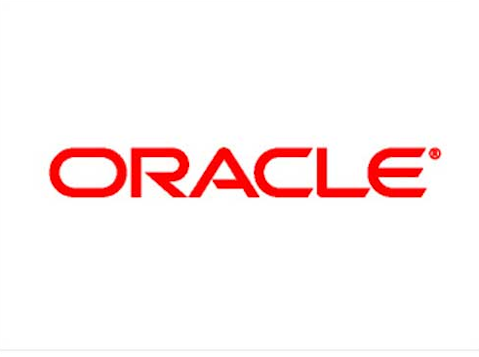The thesis of this series is that “the cloud” has passed the peak of its hype cycle. Assumptions about it are falling to Earth – falling below reality – but will adjust from here and move up at the same pace as the business.
It’s based on Gartner’s “Hype Cycle” graph, first developed in the mid-1990s, which describes how analysts tend to view technologies. Like ’em, love ’em, hate ’em, then wait for them to mature.
In the first of these stories I wrote about two early cloud leaders, Red Hat and Rackspace. In the second part, I wrote about two alternative software plays, VMware and Citrix. In this final piece of our trilogy, I want to look at two key hardware players, Oracle Corporation (NASDAQ:ORCL) and Hewlett-Packard Company (NYSE:HPQ).

Oracle: Success can lead to failure
Oracle Corporation (NASDAQ:ORCL) seems to be doing quite well. Its stock sells at an above-market PE of 15.72. Its profit margin is outstanding, at 25%, and its operating margin is even higher. The balance sheet shows debt equal to 25% of its assets, but debt is cheap, and it has enough cash and short-term investments to pay that debt at a stroke if it wants.
It’s a very well-run company. But it has a very big problem. The cloud.
Oracle Corporation (NASDAQ:ORCL) has something it calls Oracle Cloud, but it’s a semi-cloud, because it depends entirely on proprietary Oracle hardware, with expensive servers, and on a complete Oracle Corporation (NASDAQ:ORCL) software stack. It does not deliver the savings to customers that cloud users expect, but it’s not designed for that. Instead, it’s designed to let IT managers tell their bosses they’ve “bought cloud” and won’t need to hire additional staff. It’s designed to keep the profit train running at Oracle Corporation (NASDAQ:ORCL), not to create fundamental change among its customers.
But those customers’ bosses are demanding fundamental change. Many new workloads are already going to the public cloud. There, CEOs are seeing the benefits of open source, standardized software, commodity hardware and virtualization on their bottom lines. Then they’re looking toward their IT managers and asking hard questions.
All this was exemplified by a product announcement this month which followed a disappointing earnings release. Ellison hyped the company’s new servers on the conference call and later introduced them personally.
Trouble is, clouds don’t run on high-end servers. They run on commodity servers, in order to capture savings. Nothing that Oracle is doing, in cloud or elsewhere, is designed to capture savings. It’s designed to capture profits.
So Oracle Corporation (NASDAQ:ORCL) has to learn more than one lesson. And, as they said in Citizen Kane, Oracle is going to get more than one lesson. How, when, and what form this takes remains unknown. But it is going to happen, and you probably don’t want to be around the stock when it does.
Hewlett-Packard: Cloud offers a second chance
The end of the PC-era has been a horror show for Hewlett-Packard. The whole last decade has been a horror show. An incompetent board, a succession of poor leaders, and, now, the death of the PC-era with Hewlett-Packard Company (NYSE:HPQ) holding the largest share of that market, have all hammered the company and hammered the stock.
Hewlett-Packard Company (NYSE:HPQ)’s market cap of about $40 billion is now just one-fourth its annual sales, of $120 billion. That’s the ratio of a poorly-performing retailer – most tech stock sell at a substantial premium to sales. The company made an enormous write-off of its most recent big bet, Autonomy, and wound up showing a loss of $12.65 billion for the year.
Still, the company has assets, over $108 billion of them. Its debt-to-assets ratio is no worse than that of Oracle, although it couldn’t pay that debt on demand. And, while CEO Meg Whitman is unproven as a turnaround artist, at least she’s fully in-command of the company, having seen off her main rival, board chairman Ray Lane.
More important, perhaps, Hewlett-Packard Company (NYSE:HPQ) has a cloud strategy. A real cloud strategy. It is modeled on that of IBM, as many past strategies have been, but it’s a strategy that works. Build private clouds, build a public cloud, offer real cloud software, applications built on cloud, and help in helping enterprises move toward cloud.
HP is further along on this strategic turn than many analysts believe. This is especially true on the product front, where it recently announced “Project Moonshot,” a server rack organized for cloud processing, almost a “cloud in a box.”
All of which means that Hewlett-Packard Company (NYSE:HPQ) has more of a future than people think. Its PC and printer businesses remain problematic, it could really use a play in something like 3D printing, where it has a reputation but no products, but it is making the turn toward the future, and eventually that will start showing up in results.
My Foolish take
When you look at cloud stocks, understand the trends. Cloud cannot be resisted. Cloud flattens costs. Cloud enables a combination of very cheap, highly scalable public-facing Web assets tied to ever-cheaper, commodity hardware in new cloud data centers.
In time, cloud moves inexorably toward software. Cloud is defined by software, not hardware, which means that specialized storage and networking units are as doomed today as specialized servers were 5 years ago.
Evaluate all cloud stocks by this metric. Do they understand the cloud, and are they fully valued. I’ll bet you would be surprised at which company, of all those covered here, I find most attractive in the current market.
Hewlett-Packard Company (NYSE:HPQ).
Dana Blankenhorn has no position in any stocks mentioned. The Motley Fool owns shares of Oracle.
